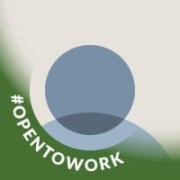
NetApp AFF Primary Use Case
JL
Jesse Lyon
Sr. storage Administrator at Nationwide Children's Hospital
We invested in NetApp technology to address our scalability and modernization requirements. Another platform we manage and aim to enhance with NetApp technologies is backups, currently residing on NetApp E Series. Each site has five to seven E Series systems handling backups.
Compared to NetApp AFF or C Series, E Series is extremely reliable but lacks features, offering basic connectivity and performance but limited capabilities. For backups, we're looking to modernize our approach and leverage features like SnapLock for rapid recovery, increasing our capacity for mass restores in case of ransomware or other incidents. We're exploring the C Series with QLC drives, seeking the optimal fit and cost-effective solution. We anticipate the C Series ASAs will likely be the answer, providing the right balance of features and efficiency for our backup needs in the coming months.
View full review »I mostly work with on-premises solutions from NetApp AFF, and what we've done is with on-premises solutions.
I also work with storage devices from this vendor, NetApp AFF, and I have experience with specific models.
View full review »I am working at a tech company where we use NetApp AFF to store our developers' data.
View full review »Buyer's Guide
NetApp AFF
August 2025
Learn what your peers think about NetApp AFF. Get advice and tips from experienced pros sharing their opinions. Updated: August 2025.
867,445 professionals have used our research since 2012.
I work in the defense industry. We have lots of data silos, more than there are colors of paint in the paint store. Trying to get people to agree on how and if they can combine those and how they can share them easily and securely is a big challenge. The solution has an architecture that emphasizes consistency above all else, and that's why they're successful. That's why, as an architect, I've been successful in convincing somebody to go ahead and buy it, consume it. They find not just performance or capacity improvements. They find operational improvements in ease of accessing the data, how consistently people can find what they're looking for quickly, and how they can integrate it with their applications. They provide not just storage. They provide a real solution.
View full review »SH
Sedrick Haynes
Senior Systems Engineer at Chevron
NetApp has always been one of the best storage solutions on the market.
View full review »NetApp has made data storage much easier.
View full review »As a pharmaceutical company, our data is very sensitive. It's critical to recover in the event of any incident. NetApp played a major role in our backup and recovery services.
NetApp allowed us to refresh our old systems with the new NetApp platforms. It allowed us to increase our capacity, our performance all over, and we are looking forward to utilizing more products in the future.
We're still in the process of the migration, so we're hoping that it will help with business and serving customers. We're hoping that it will be faster. We had previous file limitations with our old technology. We're hoping to better utilize the NetApp arrays to serve our expanding and growing business.
NetApp allows us to provide resiliency in operations. We had some data center outages before, however, our operations under this service offering were untouched, unscathed. Due to that, we're deploying more of the product in our infrastructure.
We are a semiconductor manufacturer. We use the solution for our data for manufacturing, design, research, and development. Our customers are satisfied. We deliver products on time, sometimes ahead of time. For our customers, the solution has contributed to the stability and the performance has contributed to the way we actually roll out our products. Partially our customer satisfaction is coming from the fact that we are always on time and our quality is high. And of course, storage reliability is one of the components of that.
RD
Ruud Does
Senior Storage Engineer at a government with 5,001-10,000 employees
I am a storage engineer at a government ministry. We enable our customers to use storage on-site because we are a government entity and don't use a public cloud. We enable almost all features available within the NetApp portfolio.
We recommend NetApp for all our clients that have traditional infrastructures with two servers and some companies that are in manufacturing or the public sector. We have many different experiences with NetApp.
The most common use case of NetApp AFF is as block storage and file-level storage.
View full review »GM
Glenn Meyer
Lead Infrastructure Architect at Fortune Brands Innovations (Moen)
We're using NetApp AFF primarily for file and block storage. We have deployments for remote sites and our data centers, and we also use it for NAS file storage, both NFS and CIFS. We're also using it as a cloud backup, so it is like our tertiary spot for cold data or snapshots.
Our team is gaining experience with ONTAP, which works similarly in the cloud with Azure. As the business has more requests for spinning up new apps in Azure, we'll have the expertise to deploy that quickly in Azure natively with ONTAP stuff.
To accommodate growth, we invested in the technology to manage data that must be retained for at least six years to comply with legal requirements. Consequently, as our data storage reaches capacity, the overall size of our storage grid has significantly increased.
We're a hospital, and we do a lot of imaging tasks. Specifically with our cardiology imaging, we had a lot of issues with the data transfers to the FASM. Once I moved all of that over to the AFF, all of that went away.
NetApp AFF has helped reduce operational latency. From going from our old FAS systems to AFF, I already see massive performance improvements.
View full review »Our use cases are related to VMware Infrastructure.
View full review »I have used it for storage services.
View full review »Its use cases include everything from high bandwidth to low latency, AI workloads based on NVMe drives, and all the way to our basic home directories and what I call common plop-and-drop drives for the teams.
The challenge that we were trying to address by implementing NetApp AFF was that we needed truly high-speed storage to feed the GPUs for AI/ML workloads. We also had the financial responsibility of being able to lower the QoS when we just needed basic storage rather than Pure high-performance storage.
View full review »We're using NetApp to make sure everything is secure, in a single location, and easy to maneuver and manipulate when the time comes for it.
View full review »We utilize NetApp AFF to deliver data to our users per our server and application requirements. My primary responsibilities lie within the data center, where I configure and manage user access.
The challenges we faced before implementing NetApp AFF were connection connectivity in our network, installations with current software, and upgrades.
View full review »EK
Eric Kim
Principal Storage Architect at a tech vendor with 5,001-10,000 employees
The solution has made our lives easier by providing many different storage efficient features and data protection features. In the past two years, they've really accelerated their future offerings, and that has really helped us better secure our environment and also increase efficiency.
The primary use case depends on business requirements and customer challenges.
NetApp offers two types of all-flash storage systems for different business requirements and challenges. They are also offering end-to-end NVMe-based storage systems within their all-flash product range.
NetApp AFF-A series and NetApp AFF-C series (recently introduced) are two different all-flash product verticals as per the following list:
- AFF-A Series: A150, A250, A400(Midrange), A800(High-end), and A900(High-end)
- AFF-C Series: AFF C190, AFF C250, AFF C400 and C800
The primary use case for AFF-A series models is where you need unified storage systems with extreme performance, end-to-end NVMe enterprise, or all-flash arrays, requiring the lowest latency and supporting twice as many workloads.
The NetApp AFF-C is the best fit where customers need a Unified(NAS+SAN) All-flash with capacity and affordable price. It is built on quad-level cell (QLC) flash technology to make it more affordable.
The organizations experiencing performance issues and looking to move from HDD to SSD flash and don’t want to pay an extra cost to get submillisecond performance for business-critical workloads, NetApp AFF-C is the best fit for them.
I use it primarily as a database storage solution, supporting various applications such as Oracle, VMware, and NFS SAN. It serves as a versatile storage platform for multiple use cases.
View full review »We are using it for configuring NAS as well as the SAN environment.
View full review »Our main use revolves around database management, specifically for Oracle and SQL databases, including large databases, and for handling unstructured file data within our organization.
We adopted it primarily for performance and space-saving benefits.
We use NetApp AFF for daily maintenance. It's used to provision volumes for customers and other departments.
CD
Christopher Dover
Sr Linux SysrAdmin at a tech services company with 11-50 employees
We primarily use the solution for service deck storage.
View full review »Our primary use case is running NFS exports for our local on-premises VMware and our CIFS for local shares.
View full review »We primarily use the solution for databases, including Oracle, SQL, PostgreSQL, and VMware.
We're moving some data warehouses over as well as our main financial system.
View full review »The storage aspect is the main area we utilize.
View full review »We have Cloud Volumes on top of our RDR instance and SnapMirror from on-prem to that.
We use AFF to replicate the data from our on-premises data center to the cloud.
View full review »Our IT department has two AFF clusters, but we also install them for our customers. We deploy them for tier-one use cases, like virtual machines, databases, and anything that needs fast, hot data.
We've recently started using NetApp's cloud solutions, but our German customers are still reluctant because of the security, data management, GDPR, etc. Now, we have our cloud that we can sell to customers with Meta products. Cloud backup and cloud tiering are the two primary ones, but we also sell Cloud Insights to some customers. Customers need backup services, but they often lack a separate data center where they can store their backups. The cloud is the most natural way to store the backup.
View full review »NetApp AFF handles tier-one workloads, including home drives, departmental shares, group shares, and application shares.
View full review »NetApp AFF supports multi-tenant and private clouds.
EO
Eldad Ohana
System Administrator at Haaretz
The solution is primarily used for various functionality. We separate storage from other companies.
View full review »Our whole storage environment is based on NetApp. We provide an enterprise network that offers storage for various entities that require on-demand storage, including databases, web pages, and other large-scale storage requirements. We are also getting into AI-generated content, which requires even more storage space.
View full review »I use NetApp AFF in our cloud service infrastructure to provide data storage and management for our customers.
We use the solution mostly for virtual workloads, VMware, databases, and also the VDI infrastructure.
View full review »We use it to create our volume groups for our ESX hosts, VMware, file storage, and Flash Pool for our images. We use it as a tier storage to our NetApp storage grid.
We share data between systems as well as sharing data between our off-brand mainframe.
View full review »We use the solution for virtualization. We run VMware on it.
View full review »SA
Swann Adjemian
Director of the Projects Department at ALPIX
It's used for SAN environments and a lot of VMware utilization.
View full review »MR
MohanReddy
Sr. Technology Architect at a pharma/biotech company with 10,001+ employees
We are using AFF for a few clients. It's a specific type of data we use for these arrays, not like a block kind of thing or regular data. A few clients have particular requirements about where we put all the data. We are primarily using FAS, and we have around four or five AFF boxes. We don't deal with AFF regularly.
We're not currently using NetApp Cloud Backup, but we're planning on implementing it. I'm not sure because my architect is the one who manages the end-to-end services for NetApp. He makes all the decisions on the NetApp side whether we use AFF or FAS. AFF is a unified storage box, so we route certain data to AFF.
View full review »NetApp AFF is a data storage system that replaces old ones. It has primary applications or primary workloads and the typical storage business cases.
View full review »We have a workload class that requires better performance.
View full review »We primarily use the solution for SQL server-based applications.
View full review »The main service of those devices is for use at our offshore platforms and that's where they'll be heading. We have a lot of data offshore, seismic data, and it needs to be stored in a reliable system. The main use case is to store the core business data from the platform at our offshore site, so that it is safe.
View full review »We were using a NetApp 2240 Filer, which was spinning disk and a mix of SATA and SAS. We were trying to put a production SQL Database load on it and the IOPS were way too immense for it, so we ended up buying this AFF box. It solved all the issues, at the time. We haven't needed it for anything else.
View full review »MB
Mishal Bhatt
Senior Storage Administrator at a manufacturing company with 10,001+ employees
We are mostly using it for ESX, i.e., a mix of both CIFS and NFS shares, and NAS purposes.
We have a team of four core NetApp trained people from the storage team who are managing NetApp. Two of them are in the learning stage, and I am one of them.
View full review »We are using NetApp AFF primarily for file servers.
View full review »It is used for separating locations from a network cluster and also to store the data and create a backup on another location for bigger companies.
View full review »This is a storage solution.
View full review »We host data for our users via CIFS and NFS protocols.
This is a physical appliance.
View full review »NK
Niels Kockelmann
Sr. System Engineer at a government with 10,001+ employees
We use it mostly for user file data. We are also providing data stores for our VMware platform.
View full review »HM
Harish Manukonda
Senior Consultant at a tech services company with 10,001+ employees
The main purpose of the AFF is to work with applications that require high-intensity I/O operations. For example, we run some open-source DBs, as well as Oracle, that require high-intensity I/O. We also have a high-performance computing setup.
We have two locations. In the first location, we have an AFF cluster. In the second location, we have an AFF cluster that works in combination with ASAs.
Our environment is primarily made up of open-source applications.
View full review »We host NSS as a part of a cluster. We use AFF to support data analytics, machine learning, cloud integration, and SAP workloads as well.
View full review »Our primary use case for AFF is for databases.
MV
Marcel Van As
Data Center Engineer at Belimed
We use the solution to host the system data for VMs.
View full review »SJ
Subodh Jaiswar
Storage Specialist at a computer software company with 1,001-5,000 employees
The first use case is having normal CIFS and NFS shares use Active Directory integration with antivirus integration. Another use case is for VMware VCF in a TKG environment using NFS and a SAN protocol.
I am implementing the NetApp product for customers. I deploy CIFS and NFS shares for file access purposes and block access for VMware infrastructures.
View full review »DR
Daniel Rúnar Friðþjófsson
Storage Administrator at Sensa ehf.
We use it as the backbone for all our VM and Hyper-V infrastructure. We also use it as file servers for external users, so we have a couple of users who are connected to it for file server purposes. We have everything connected to it, e.g., we have a repository from Rubrik down to AFF.
We have our own customers for whom we have deployed the solution. For our hosting options, we use NetApp as well. Since we are selling hosted services and have customers connecting into our environment, the solution has definitely helped a lot from that standpoint.
View full review »SG
SteveGrangert
Storage Engineer at Missile Defense Agency
We use NetApp AFF mostly as a NAS solution, but we do some SAN with it. Basically, we're just doing file services for the most part.
We're running an AFF A300 as well as a FAS8040 that is clustered together with the AFF A300.
We're not allowed to use cloud models.
View full review »PS
Phyo Pyah Soe
Service manager at VST ECS
Our customers use the solution for its MetroCluster feature.
View full review »We use them for file services, email, as LUNs for servers, Exchange, Oracle, and SQL.
View full review »We are using it for storage.
View full review »I primarily use the solution for asically all my main data for all my ESXi hosts.
View full review »The solution is primarily used for data protection and disaster recovery, business continuity, and cybersecurity.
View full review »The primary use case for AFF is for use in our production environment. Within our production environment, we have a number of different data stores that AFF serves. We use a number of protocols from NFS to CIFS, as well from the file system protocols, and in the block level we use iSCSI.
We are a fully on-prem business as far as data positioning data sets.
We don't have real-time applications that we run in-house, being a law firm. The most important thing is the availability of our environments and applications that we serve to our client base. We don't have real-time applications that we could be measured in real tangible form that would make a huge difference for us. Nevertheless, the way it goes: the faster, the better; the more powerful, the better; and the more resources you can get from it, the better.
View full review »BM
Bob Mulders
Head of Infrastructure, Network & Security Management at Vos Logistics N.V.
We are using this product for performance and growth.
View full review »Our primary use case for AFF is to host our internal file shares for all of our company's "F" drives, which is what we call them. All of our CIFS and NFS are hosted on our AFF system right now.
View full review »The primary use case of this solution is for our production storage array.
View full review »NetApp AFF is used to store all of our data.
We're a full Epic shop, and we 're running Epic on all of our AFFs. We also run Caché, Clarity Business Objects, and we love the SnapMirror technologies.
View full review »VK
VinodKaila
Storage Architect and Engineer at United Airlines
We use NetApp AFF to host all of our on-premises applications and data.
View full review »We use AFF to serve out the Oracle and for the virtual storage VDI.
View full review »Our primary use for this solution is for production storage. We have got everything: VMware, SQL servers and file servers. It handles all of them.
Our primary use for this solution is NFS and fiber channel mounts for VMware and Solaris.
JB
JoshBishop
Manager at Pramerica
Our primary use case for this solution is for production storage.
We don't use ONTAP for artificial intelligence or machine learning applications.
We're not replicating to the cloud yet. We're replicating from on-prem to on-prem, but replicating to the cloud is probably our next step in our data center evolution.
View full review »Our primary use case for this solution is machine learning.
VS
VikramjeetSingh
Storage Analyst at a financial services firm with 10,001+ employees
Our primary use case for NetApp AFF is performance-based applications. Whenever our customers complain about performance, we move their data to an all-flash system to improve it.
We have our own data center and don't share our network with others.
We did it for consolidation of eight file repairs. We needed the speed to make sure that it worked when we consolidated.
View full review »AD
AlirezaDanestehpoor
Senior Storage Engineer at HYUNDAI AUTOEVER AMERICA
We have been using the FAS series product, and AFF is pretty similar to the FAS products, as it still runs the ONTAP operating system. They are using AFF because that comes with all-flash disks, which gives us better performance with a smaller footprint. We use that mainly to start our block and NAS data.
View full review »Our primary use for NetApp AFF is backup for our production. It's more for our database for all of our retail for Nordstrom. We've got to keep it running every day, so we've got to make sure that we have all the databases backed up for three years, or more.
View full review »FK
FelmonKahissay
System Administrator at Bell Canada
Currently, we are leveraging AFF for our VMware environment solution. So, we use it as a storage for our customers and are leveraging it to provide a faster storage solution for VMware customers.
We are using it for block level based only storage, as of today.
View full review »We use this solution for NAS and SAN.
View full review »PH
PhilHarris
Technical Lead at USAF
Our primary use case of this solution is for SAN block storage.
We don't use AFF for artificial intelligence or machine learning applications.
View full review »BC
BryanCranny
Storage Manager at State of Nebraska
We use NetApp AFF products for file storage across multiple agencies in the State of Nebraska. We are a consolidated state, so all of the agencies of our state have consolidated files on NetApp products. We use AFF as our top tier solid-state storage for application and user data storage.
View full review »SM
ShawnMurdoch
Systems Engineer at Cleveland Clinic
The primary use case for AFF is as a SAN storage for our SQL database and VMware environment, which drives our treatment systems. We do not use our it currently for AI or machine learning.
We are running ONTAP 9.6.
View full review »This solution provides storage for our entire company.
We have a unified architecture with NAS and SAN from both NetApp ONTAP AFF clusters.
View full review »We are in the process of moving to AWS and we are using this solution to help move all of our data to the cloud, using the tiering and other functionality.
We have approximately fifty AFF clusters spread across three locations.
We plan to use this solution for artificial intelligence and machine-learning applications, but we are still in the PoC right now. It is something that my team is working on.
Our DR and backup are done using SnapMirror.
We use it primarily for CIFS and NFS shares, e.g., Windows shares and network shares for Linux-based systems.
View full review »The primary use case is enterprise storage for our email database system.
We have just been using on-premise. We are looking to move the workloads to the cloud, but right now it's just on-premise.
View full review »JC
Jaime Cogua
Senior Unix Storage Engineer at a consultancy with 1,001-5,000 employees
Our primary usage for All Flash is for the Oracle Database.
View full review »SP
Sonu Parmar
IT Manager at TELUS Corporation
We use it for NFS and CIFS to structure data. We have about a couple of petabytes of all-flash.
View full review »We use it for block storage.
View full review »We use it for our EHR. We have 4,000 users who need to have access to a very large EHR called Epic. We are sharing a cache database through AIX servers.
View full review »KL
Keith Latimer
IT Operations Manager at Idaho State Insurance Fund
NetApp is our primary storage device for our line of business. We use NetApp as our primary storage device and also for our DR.
We are a workers' comp insurance company that has been in business for a 120 years.
View full review »AFF is our complete storage solution. We use it for SIP shares and VMware volumes.
View full review »AB
Angel Barra Madrigal
Consultor and Co-founder at OS4IT
We use it for different machines, Oracle Database, super server database, and a few BDI projects.
View full review »We primarily use it for storage for VMs and backup units.
We use this solution on a daily basis. In Sweden, typically small to medium-sized companies use this solution.
We use this solution for in-house data.
View full review »Our primary use case for NetApp AFF is unstructured data. We set up it up for high availability and minimum downtime.
View full review »We use NetApp AFF to support our VMware environment.
View full review »CO
Carlos_Oliveira
IT Manager at Universo Online
Our primary use case is that we have two areas with AFF storage
View full review »We primarily utilize AFFs for engineering VDIs. We are utilizing it to host VDI and performance is the primary expectation from AFFs. We are satisfied with the product.
View full review »We primarily use NetApp AFF for file storage and VMware.
View full review »The primary use case is for customers who need absolute low latency and have low latency in their workloads. They need maximum performance in their virtualization and file storage environments.
View full review »We use this solution for back end storage of vSphere virtual machines over NFS.
View full review »Our primary use case for AFF is for file storage.
View full review »MA
Michael Archuleta
Chief Information Officer at Mt. San Rafael Hospital
We have a pretty amazing story about using AFS. When I went into this organization, we had a 59% uptime ratio, and at the time we were looking at how to improve on efficiency, and how to bring good technology initiatives together to make this digital transformation happen. When the Affordable Care Act came out, it started mandating a lot of these health care organizations to implement an electronic medical record system. Of course, since health care has been behind the curve when it comes to technology, it was a major problem when I came into this organization that had a 59% uptime ratio. They also wanted to implement an electronic medical record system throughout their facility, and we didn't have the technology in place.
One of my key initiatives at the time was to determine what we wanted to do as a whole organization. We wanted to focus on the digital transformation. We needed to determine if we could find some good business partners in place so we selected NetApp. We were trying to create a better, efficient process, with very strong security practices as well. We selected an All-Flash FAS solution because we were starting to implement virtual desktop infrastructure with VMware.
We wanted to throw out zero clients throughout the whole organization for the physicians, which allowed them to do single sign-on. The physician would be able to go to one specific office, tap his badge, sign in to the specific system from there. That floating profile would come over with him, and then you just created some great efficiencies. The security practices behind the ONTAP solution and the security that we were experiencing with NetApp was absolutely out of this world. I've been very impressed with it. One of the main reasons I started with NetApp was because they have a strong focus on health care initiatives. I was asked to sit on the neural network, which was a NetApp-facilitated health care advisory group that focused and looked at the overall roadmap of NetApp. When you have a good business partner like NetApp, versus a vendor where a vendor's going to come in, sell me a solution and just call me a year later and say that they want us to sign something, I'm not looking for people like that. I'm looking for business partners. What I like to say is, "My success is your success, and your success is ours." That's really a critical point that NetApp has demonstrated.
View full review »GR
Greg Rose
Principal Engineer at a retailer with 5,001-10,000 employees
My primary use case for All Flash FAS that we have is pretty much everything. It is the go-to storage device that we use for block fiber channel devices on our heavy SAP workloads as well as user base files and file shares for databases.
View full review »RS
Ricky Santos
System Administrator at ON Semiconductor Phils. Inc.
We have deployed NetApp AFF with four nodes; two of these are in our primary data center, and the remaining two are in the second data center. We are using Cluster Mode configurations.
View full review »VMware datastores over NFS for DL585 G7 hosts on a 10G switch.
View full review »MT
Miguel Tena
Infrastructure and Services Presales Consultant at I.D. GRUP S.A.
Shared storage for virtualized environments.
View full review »RC
Rodrigo Carte
Head of IT at Inacap
Mixed sharing between Windows and Linux using CIFS and NFS is the best solution you can experiment with.
View full review »VMware multi-tenant and SnapMirror destination, multi customers' filesystem too, no problem with multi AD and domain
View full review »TA
TahirAli
Chief Enterprise Architect at a healthcare company with 1,001-5,000 employees
Our primary use case for AFF is for all of the filers. We're also doing a lot of workloads for virtualization. All of our virtualization workloads are currently running on All Flash FAS.
View full review »GW
Greg Weld
Senior CI Engineer at a financial services firm with 1,001-5,000 employees
The primary use case that we have for NetApp's All Flash FAS is for on-premise storage that we've used for presenting LANs, NFS, and SIF shares for servers for analytics and ESX data storage.
View full review »The primary use case of this solution is for its speed. We're using the AFF as a cache disk. We have terabytes of data that we have to move quickly off a system. The only way we could do that is with the 40 gig backbone that all-flash array provides and the speed of the disks.
View full review »AFF is our primary source for our data centers. We use it for our multi-tenancy data center. We like the crypto erase function available on the SSDs and we needed the high performance, IOPs that you can get from SSDs.
View full review »RC
Rodrigo Carte
Head of IT at Inacap
We use data storage for our big environment. It creates an environment where students and teachers can work together.
We did the installation two months ago. Now, we are reviewing its affect on behavior over time, which has been incredible. We have less latency within all applications.
View full review »NetApp is introducing All Flash FAS with the all-flash array. Our customers like performance, they don't want to deal with latency. Using an all-flash array, our customers get impact from performance.
View full review »ZM
Zakeer Mohammed
Storage Engineer at a tech services company with 10,001+ employees
Whenever we face any issues with performance, particularly any performance with our high outreaching storage site, we are recommended to use an all-flash service, because we rely on our primary solution at all times. If it seem like there are issues, we have bring in different vendors as a buffer. We have adopted an all-flash primary solution with this use case.
View full review »The primary use case is availability, performance, bandwidth, and throughput with respect to our applications.
We are currently using an on-premise solution.
View full review »EA
Ed Alexander
Senior Systems Administrator at a computer software company with 10,001+ employees
We use it for high performance, block storage, and file storage.
The highest performance need apps are usually deployed on AFF. We're using adaptive QoS to identify what applications require higher performance and moving those volumes over to the AFF.
View full review »We use it for data storage, applications, and CIFS shares.
View full review »We use it for all of our VM storage.
View full review »PH
Paul Holt
Executive director IT Systems at MemorialCare Health System
We use it for electronic medical record storage.
View full review »We use it in the healthcare industry.
View full review »We use it for data storage.
View full review »We are it for CIFS, NFS, and NAS. We are also using it for the cloud environment.
View full review »We use it for typical data center workloads: Exchange, file shares, and SQL.
View full review »We are mostly using it for NAS, CIFS, and NFS protocols.
View full review »We use it for our VWware environment. We run virtual machines and our plan is to migrate all of them to the All Flash platform.
View full review »We do storage across the United States.
View full review »SP
Sunder Periesany
IT - Technical Manager at Macrovention
We have a range of customers, from manufacturing to oil & gas, in Malaysia. We have been using NetApp for quite some time, but now performance is a big issue for our customers, along with other challenges for them, so they are opting to go to All Flash.
NetApp is doing a good job of delivering to and satisfying customers. All Flash cloud technology has helped them a lot.
View full review »We have a multi-tenant shared solution that we use with Quality of Service to provide bare metal as a service and IP storage to our customers. We keep it very simple. It's an automated solution which customers configure on a portal and then it automatically configures storage for them.
View full review »ST
Sandeep Thota
Consulting Manager at a computer software company with 1,001-5,000 employees
Our primary use case is escalating a more global performance, which wasn't achievable with the regular spinning drives. We wanted to have higher breakthrough performance with a flash-based solution using all SSD drives.
It's, mainly it's for storage, we have various databases with different applications and we are using it just for storage, mainly as just a storage for our systems.
View full review »We are using it for VMware and Hyper-V data stores.
View full review »We use it for medical systems.
View full review »PH
Peg Heffron
Network Professional at a aerospace/defense firm with 10,001+ employees
We use it for data storage for Citrix VDIs.
View full review »AB
Ashwin Bhadra
Senior Manager of Product and Services at a tech services company with 1,001-5,000 employees
We are a multi-cloud provider and we use NetApp All Flash as the base for providing the cloud services.
View full review »DB
Damien Berezenko
Technical Director at CUSTOMERTIMES CORP
- All flash
- SAN and NAS server virtualization
- Databases (OLTP and OLAP)
- File shares
- Test or development
A centralized storage solution for Telecom organizations. Where NetApp FAS 6200 was connected to HP-UX, AIX, Linux, VMware, and Windows, this storage is used by the OLTP solution (database and application) as well as a data warehouse application.
- Using NetApp AFF 8060 in two-node MetroCluster configuration.
- Used for NAS protocols only.
- CIFS and NFS provisioned through several SVMs (vFilers).
- Shares for normal company office files, Oracle Middleware binaries, Citrix profiles, and more.
We use the solution for IBM and SQL workloads.
View full review »We use both NetApp's FAS and AFF solutions. It's a hybrid that we use for FileMaker.
Our use case is to implement it for our clients.
View full review »Buyer's Guide
NetApp AFF
August 2025
Learn what your peers think about NetApp AFF. Get advice and tips from experienced pros sharing their opinions. Updated: August 2025.
867,445 professionals have used our research since 2012.





























